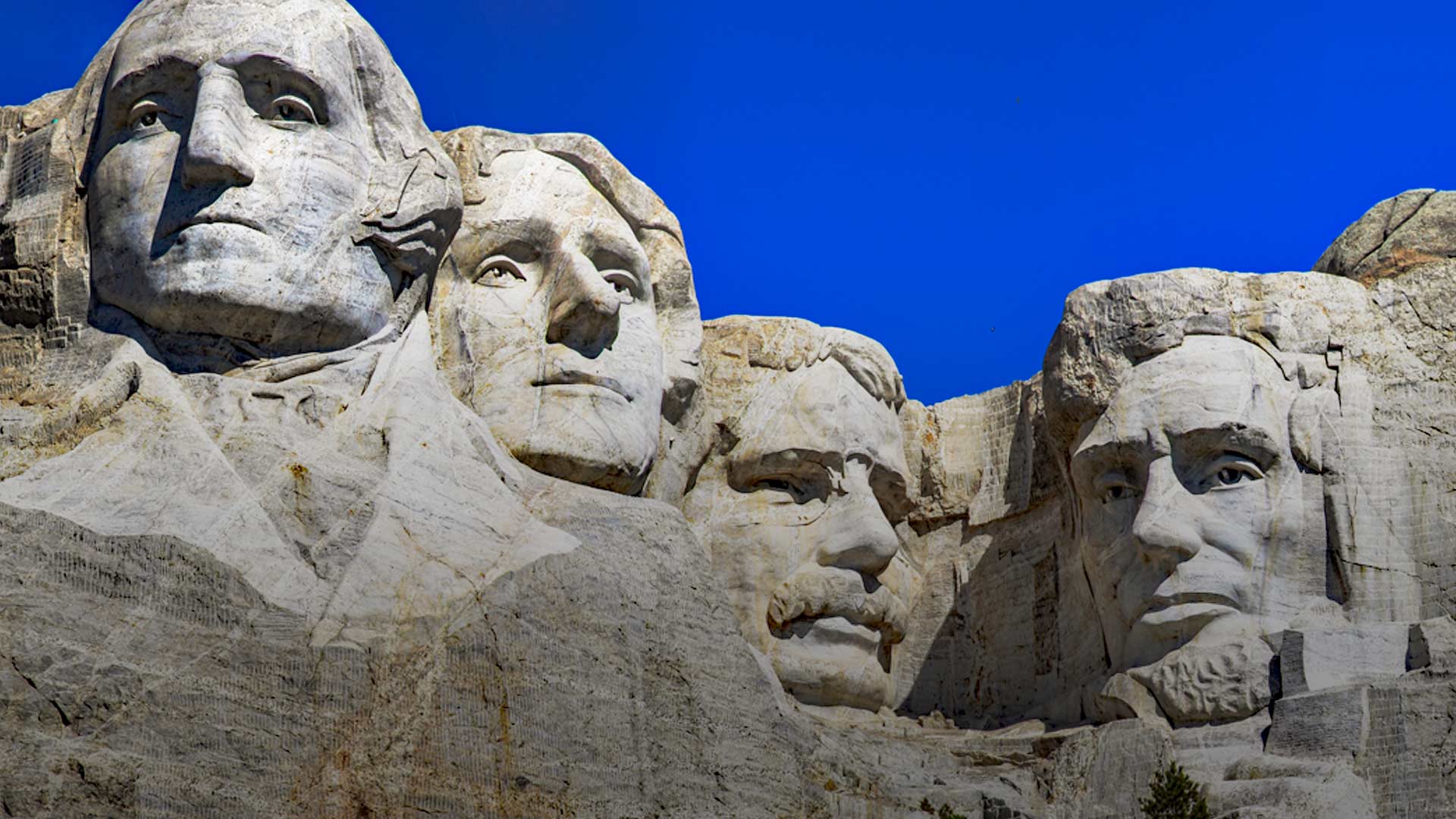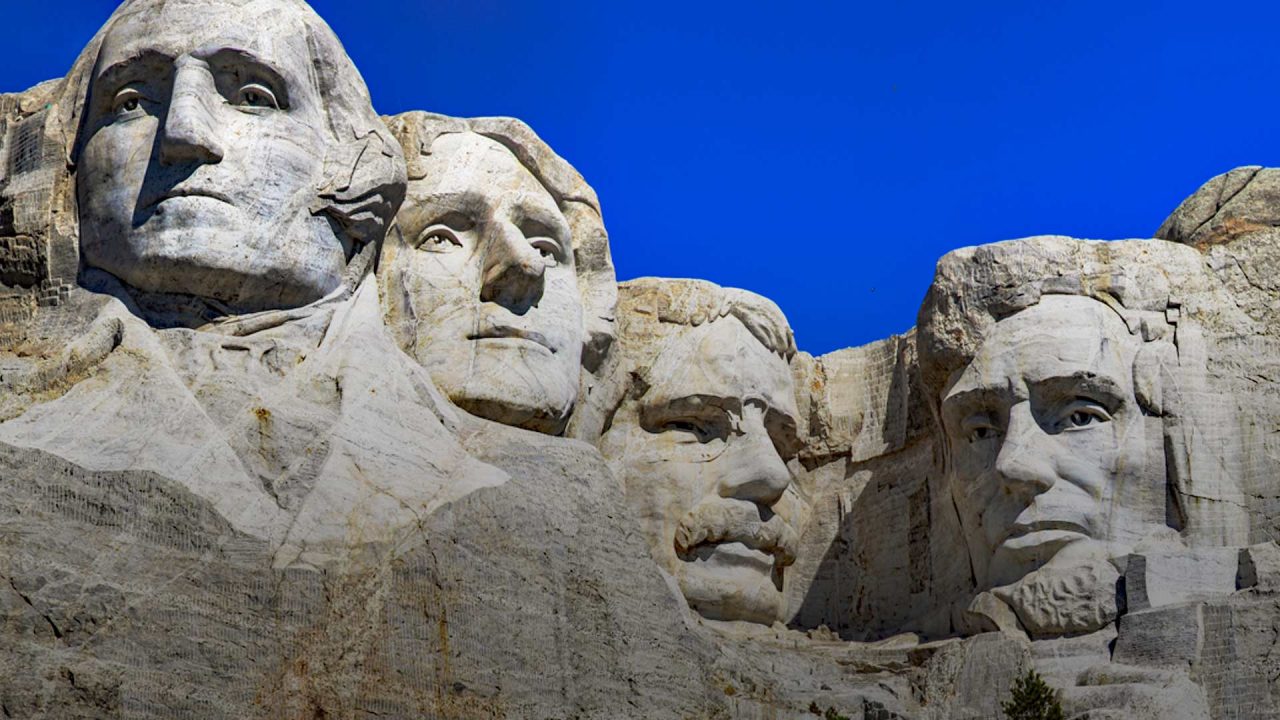
When fishing around for an excuse to give federal and state bureaucrats a three-day weekend, Congress decided about 50 years ago to combine Lincoln’s (Feb. 12) and Washington’s (Feb. 22) birthdays into one, and … oh, what the heck, just throw in all the other ones, too.
Just from a personal opinion, which will largely be misunderstood, the best presidents have been the ones who meticulously followed the Constitution, that ill-used document that they all swore an oath to uphold – most of them doing so quite poorly.
The list of constitutional presidents is very short indeed, and not being an expert on the detailed tissues of every facet of their tenure as chief executive, there likely are overlooked transgressions even from the best.
John Tyler. Of Tippecanoe and Tyler, Too fame, he became president one month after the Whig Party’s [read: the “more government” party] president, William Harrison died. Not liking the unconstitutional tax-and-tariff-for-industrial-subsidy “American System” program of Henry Clay, Tyler vetoed the Whig’s legislation, and was universally detested. He also lived a very long life, tried to save the Union with compromise after Lincoln’s election, and had to be considered a “traitor” when he linked his fate with his home state of Virginia when it seceded.
You might wonder, why did Tyler, a less-government Jeffersonian Democrat, ever join the Whig Party to begin with? Because he saw Andrew Jackson’s dictatorial tendencies, beginning with his threat to invade the South. Himself a slave-owner and born-and-bred southerner, Jackson was going to enforce tariffs, tariffs that he himself hated, but nevertheless was going to enforce, at the risk of civil war, not in 1861 but in 1832. Van Buren, Jackson’s protégé, kept doing that constitutional deconstruction thing, and Tyler wanted someone or something else in the presidency.
When it turned out to be him, he wasn’t going to blow his chance!
Grover Cleveland was the last of the less-government Democrats.
Andrew Johnson. Himself a pro-union southerner who became Lincoln’s second vice-president, Johnson might be fairly criticized for opposing secession. Yet when he was placed in power after the assassination, Johnson lashed himself to the mast and defended states’ rights against the vicious tyranny of Radical Reconstruction. That he was ineffective and bumbling is not the point. A man who even his opponent’s admired for his raw courage, he did what he felt had to be done to defend his oath.
Grover Cleveland. The last of the less-government Democrats, Cleveland famously said, regarding the use of federal power and money:
“I know of nothing in the Constitution which authorizes expenditures for charitable purposes.”
“Though the people support the government, the government should not support the people.
“Communism is a hateful thing, and a menace to peace and organized government.”
“Whatever you do, TELL THE TRUTH.” And he did, admitting during his first campaign, at the very height of the Victorian Era, that he had fathered an illegitimate child 20 years earlier.
Historians are notoriously always sympathetic towards more and centralizing government power.
He still won.
Calvin Coolidge. Although he unconstitutionally deployed Marines to Nicaragua, ostensibly to stave off communism, he was a complete niggling and parsimonious follower of the Constitution in domestic affairs. Next to Lincoln, Coolidge’s quotes are the most sought-after:
“Restricted immigration is not an offensive but purely a defensive action. It is not adopted in criticism of others in the slightest degree, but solely for the purpose of protecting ourselves. We cast no aspersions on any race or creed, but we must remember that every object of our institutions of society and government will fail unless America be kept American.”
“I am opposed to any general extension of government ownership, and control. I believe not only in advocating economy in public expenditure, but in its practical application and actual accomplishment. I believe in a reduction and reform of taxation, and shall continue my efforts in that direction.”
ALASKA WATCHMAN DIRECT TO YOUR INBOX
“I favor the policy of economy, not because I wish to save money, but because I wish to save people. The men and women of this country who toil are the ones who bear the cost of the government. Every dollar that we carelessly waste means that their life will be so much the more meager. Every dollar that we prudently save means that their life will be so much the more abundant. Economy is idealism in its most practical form.”
“It would not be unjust to ask of every alien: What will you contribute to the common good, once you are admitted through the gates of liberty? Our country must cease to be regarded as a dumping ground.”
This is a short list, and will not be found on any other. Historians are notoriously always sympathetic towards more and centralizing government power. Thus, in part two we will analyze the worst presidents. That list is tiresomely long.
And on this Presidents’ Dictators’ Day, please consider what the current dictator is doing regarding the World Health Organization and our national sovereignty.
The views expressed here are those of the author.








26 Comments
Right on mr Bird!
Please also consider where our present governor is taking us and if possible a comparison of the past ones as well!
Thank you Again and again
Always enjoy an expo from Mr. Bird
Our president is a dictator? Get a grip Bird?
Mayo, your resident in the White House IS A DICTATOR!
Biden is not. Trump wasn’t either. We live in a representative government, not authoritarian.
Really? I would be curious what your opinion or thought of a “dictator” is. How are you being controlled or manipulated? How are you being told what you must do? How is your economic position controlled by this administration.
Using the term dictator is way too easy. Don’t play the card if you can’t lose at the poker table.
I don’t know what your pronouns are “Hmmmm,” but, I don’t play poker or cards. Your resident is trashing this great nation and you, Mayo, and all your buddies have been instructed to keep repeating the narrative in hopes that you are going to rewrite history. It is not going to work this time around. The people who love humanity are awake and more are waking up and we are not playing the globalist game. History is ours for the making and we are making it one truth at a time.
Happy President’s Day to the REAL President of the United States President Donald J. Trump!
You can not be serious, At some point you should look into the mirror and say, “Am I taking this too far?”
I am totally serious. President Donald J Trump won 2020 by a landslide. President Donald J Trump will win by a landslide in 2024 if he is not back before then. The People of the United States saw President Trump going to Ohio to help the people there. The People of the United States saw Resident Biden fly off to Ukraine for another holiday and they saw that he took more of our taxpayer’s money to give to Ukraine. People are waking up to the truth that Resident Biden hates the United States and is destroying it. President Trump will be back – mean tweets and all.
Yer kidding, right? I hope? Tell me please that you do not believe Trump is the current real president.
Will you tell me please that you don’t believe that a guy who couldn’t draw a crowd during his campaign and rarely can even form an intelligent sentence was elected president of our country? If you do, it speaks volumes about what is wrong with our country. God help us
Will you tell me please that you believe that a guy who couldn’t draw a crowd during his campaign and rarely can even form an intelligent sentence was elected president of our country? If you do, it speaks volumes about what is wrong with our country. God help us
The election was not “stolen.” How could it be? Trump was on the same ballot as everyone else. If the Democrats REALLY wanted to steal the election, how is it that the GOP picked up so many seats in the House? Fact is, too many voters that wanted to give Trump a chance in 2016 just became fed up with his bratty behavior, not necessarily the other Republicans who were running.
If Mayo is not a troll, and is a naive dreamer, I would presume he merely looks at FORM and not reality. Perhaps because presidents still have a time and a term limit, he doesn’t see them as dictators. But it is the OFFICE that has assumed the dictatorship, and whomever currently occupies it. Launching wars without declarations, making foreign and domestic policy, surrendering sovereignty, instituting BATF gun controls, locking up resources, etc, all on a dictator’s whim (or from the puppet-masters in the oligarchy), is the very definition of dictatorship.
Nonsense Bird. The presidency doesn’t work unilaterally like you pretend. There is some Republican advantage to you claiming dictatorship, but I can figure it out. It’s just not true. Virgins can’t give birth; the dead do not rise again.
Dang. Joel cancelled my response.
I can understand, Mayo, it’s happened to me on several occasions.
I have even had some of my posts not approved. Happens. Bummer.
“………Congress decided about 50 years ago to combine Lincoln’s (Feb. 12) and Washington’s (Feb. 22) birthdays into one, and … oh, what the heck, just throw in all the other ones, too………”
That occurred when they decided to create Martin Luther King Day to appease the blacks, and to do so without creating additional “three day weekends” for those horrible federal employees everybody loves to hate. The question that we should be debating is whether or not blacks have been successfully appeased by that……..as well as creating “Juneteenth”, whatever that is………….and all the other laws, constitutional amendments, contract preferences, equal opportunity regulations, school scholarships, etc. If it was successful, I suggest officially changing Columbus Day to Indigenous Peoples Day, and officially prohibit the mention of Columbus. Federal employees still get 11 paid holidays, that hasn’t changed since at least 1946, and they really don’t care much anymore what you want to call them.
Cofeve! Biden got more votes than trump, thus he won. Trump tried to steal the election and attack our constitution but, like most of his endeavors, he failed.
Keep repeating your words Mayo. We know how this works: the more you say them, the more you believe they are true. Trump won. Trump 2024 (or sooner).
Ha! You fool. My side relies on evidence and reason and proof. Yours relies on unsupportable hope and faith. Truth – the defensible truth- wins every time.
Mayo, I wish that I knew how to show headslaps using the keyboard instead of emoticons, because that would be my answer to you. Lol
Yes, you are right, truth wins every time and there is a great social site that speaks truth without being censored – Truth Social. Trump won in 2020. Trump will win in 2024 or he’ll be back before 2024. Truth is awesome!
FoH. Truth Social? Why publicly parade your lack of critical thinking skills?
Said by someone has never lived under a dictatorship. This is partisanship at its worst. Disappointing to see how effective the enemy has been at dividing us as a nation. Sad but effective.